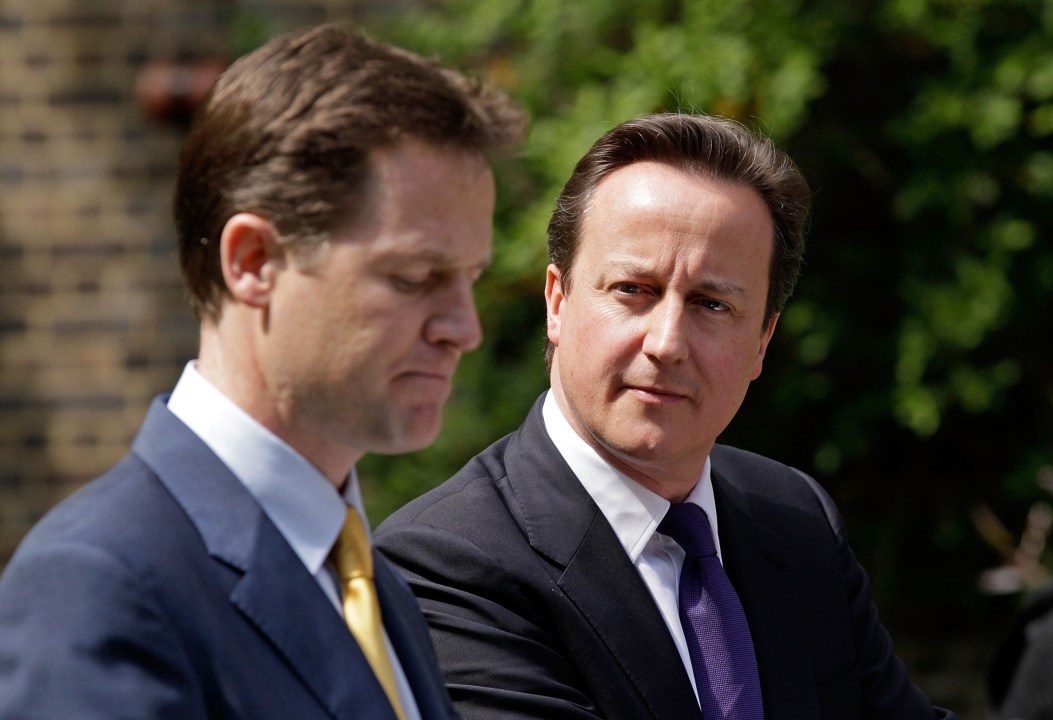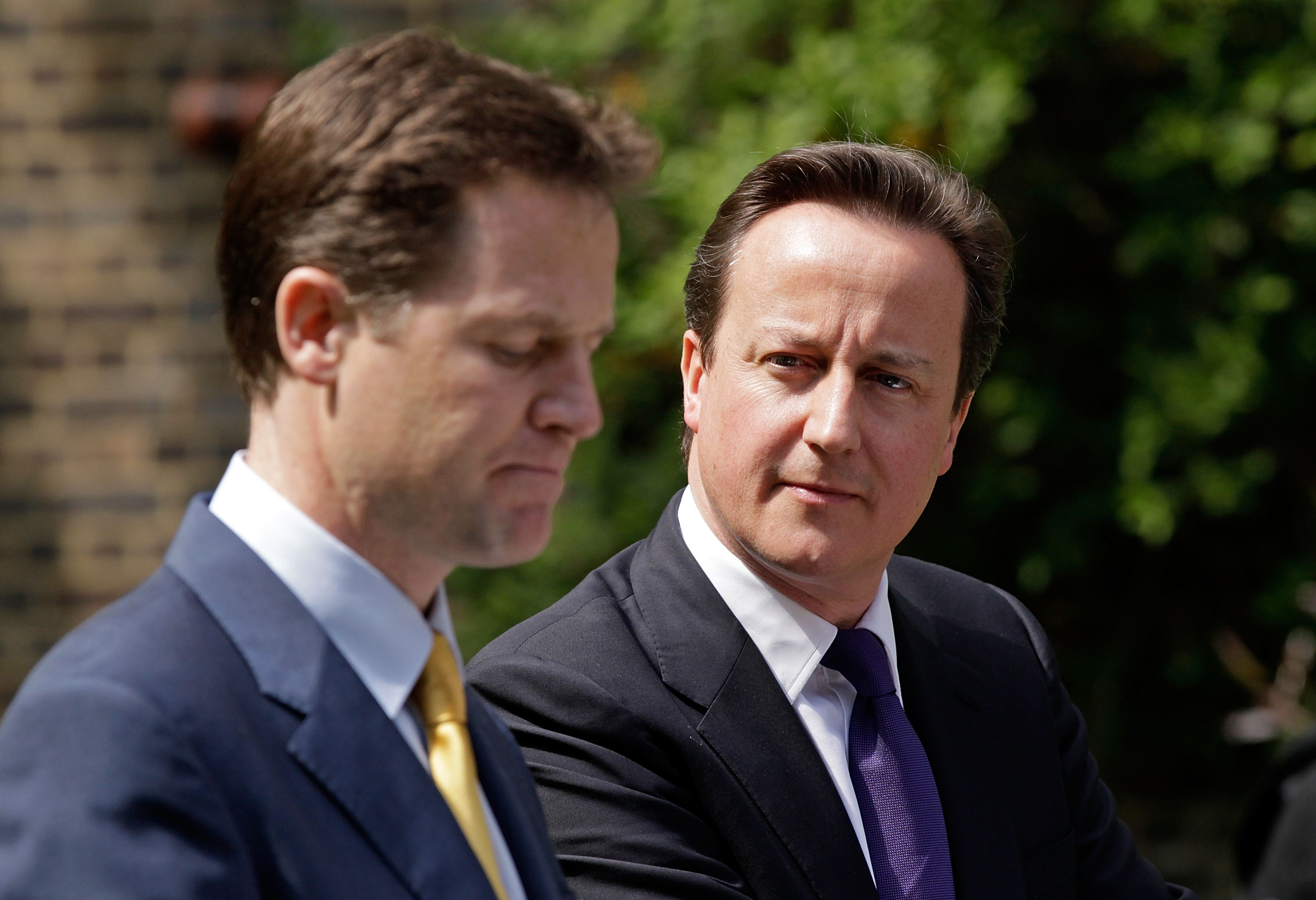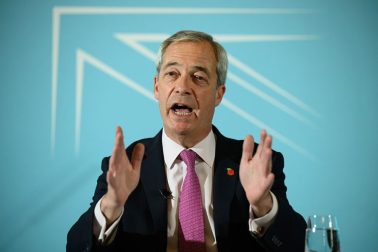 Today’s civil partnership between two men who look uncannily like each other will, I
suspect, be remembered as a festival of misplaced optimism. Cameron overdid it a little, making out that this was his ideal outcome. It seems rude to point it out, but there were two podiums in
that rose garden because he flunked the election (see Tim Montgomerie’s superlative report for details). The cost of his
failure to win is having to do a deal with Nick Clegg. The country didn’t vote for a new politics: the Lib Dems did worse than last time, so polls show most voters would have preferred Cameron to
have formed a minority government. This is an alliance designed to stop Cameron fighting an election again soon, and repeating last week’s jarring experience. So let’s not pretend this is the
liberation of Paris, dawn of a new era, etc.
Today’s civil partnership between two men who look uncannily like each other will, I
suspect, be remembered as a festival of misplaced optimism. Cameron overdid it a little, making out that this was his ideal outcome. It seems rude to point it out, but there were two podiums in
that rose garden because he flunked the election (see Tim Montgomerie’s superlative report for details). The cost of his
failure to win is having to do a deal with Nick Clegg. The country didn’t vote for a new politics: the Lib Dems did worse than last time, so polls show most voters would have preferred Cameron to
have formed a minority government. This is an alliance designed to stop Cameron fighting an election again soon, and repeating last week’s jarring experience. So let’s not pretend this is the
liberation of Paris, dawn of a new era, etc.
That said, today can be said to be a victory for Conservatism because the two best policies – welfare reform and education – will be implemented by the most competent people. Grayling’s return to the DWP brief is great news: he is not a vain man, he is – like IDS – genuinely enthused about the transformative power of welfare reform. It was Grayling who seized on the David Freud agenda to start the welfare reform bidding wars which James Purnell responded to so well. To have all three in the DWP is as close as you get to a dream team in politics.
I met IDS earlier, and we had a brief chat about what lies ahead. And I offer CoffeeHousers this analogy. When George Robertson was sent from Scotland to the MoD in 1997 it was a shock to him: he had not the first clue about defence. IDS has spent 18 months studying not only welfare, but who’s who in the DWP: the civil servants, the various divisions, who has been performing, who has not. Also he has no career ambition: he will give his all to making radical welfare reform a reality. This nettle is never grasped because the poor are so easily ignored: Labour left 1.2m people on benefits every day of the last decade and got away with it. No one who has met IDS can doubt his motivation.
The British system means MPs with no interest or expertise run departments – usually badly. With Gove and IDS you have two men who have spent years preparing for a task they actually want to do. Also, both tasks are progressive insofar as they only aim to help the least advantaged. Welfare reform is expensive: it’s about saving lives, not money. Gove’s free school policy aims to give the poor the same choice in education that the rich have. They are great examples of progressive ends, but conservative means. Both should yield hard results within a year.
On the whole, I fear that this coalition is doomed and this ‘new politics’ a squalid triumph of expediency over principle. It could be no other: this is what happens when parties do deals with each other after the people have spoken. The Tories warned about this in their election broadcast: a hung parliament would mean “under the table deals being the order of the day,” and an “end to transparency” with “policies bickered over by secret committees”. So it was to prove. The upside is that the Tories will find it easier to project the liberal part of their agenda. But there are other ways to break out of party stereotypes: and Cameron can do so by showing Gove and IDS can do more to help the poor than 13 years of Labour did. It is an agenda the Blairites would have nailed if they had been given the chance.
So, I would have preferred an outright Tory government, but like what I see today. The Lib Dems may be used as backing vocals, but Cameron is singing the blues.








Comments